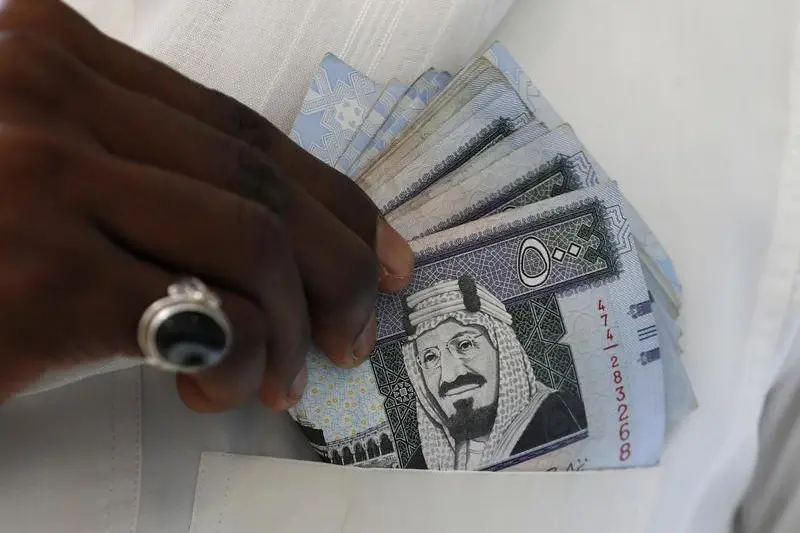PHOTO
RIYADH - Bank lending to the private sector in Saudi Arabia will steadily return to growth in 2018, backed by higher oil prices and increased government spending, the managing director of Saudi British Bank (SABB) told Reuters.
Lending activity to the private sector, a sign of banks' confidence in the economy, had weakened over the past couple of years as the oil price slump slowed down the kingdom's economic growth and cut demand for loans.
Loan growth shrank 1 percent in 2017 - for the first time in at least 11 years - following modest growth of 2 percent in 2016, as companies held back from investment amid concerns over government austerity policies in an era of cheap oil.
"Last year, in terms of the overall economy, we were on a gentle downward trajectory, gentle but nevertheless down, it seems like to me now that we have bottomed out and we are experiencing a 'normal' economic cycle," David Dew told Reuters in an interview.
"I believe we are going to be on a gentle upward trajectory in 2018 that might reverse what happened in 2017," he said, adding that loan growth is expected to be in the low single digits.
Saudi Arabia plans to increase spending to a record 978 billion riyals ($261 billion) in 2018, according to the finance ministry, up from 890 billion riyals in the original 2017 budget plan and 926 billion riyals of actual spending last year.
The government, which has embarked on an economic transformation plan called Vision 2030, has also slowed an austerity drive to help lift the economy.
"All these initiatives are helping to create a more buoyant economic outlook ... I am not talking about heady growth in 2018, I am talking about a steady return to positive growth."
He said SABB, the kingdom's sixth largest bank by assets and 40 percent owned by HSBC Holdings HSBA.L , sees good business opportunities in the housing and financial sectors, in the country's privatisation drive and in projects led by the government's Public Investment Fund (PIF).
Riyadh aims to raise over $200 billion in coming years by selling stakes in oil giant Saudi Aramco and other assets. It will funnel part of this money into non-oil industries via vehicles such as PIF. Private firms will be encouraged to invest alongside the government with incentives such as soft loans.
MERGER TALKS
Dew said discussions were still ongoing on the proposed merger with Alawwal Bank, which is 40 percent owned by Royal Bank of Scotland, but did not elaborate on the possible outcome.
He said the idea of a merger arose from the need for larger scale banks to meet the kingdom's development plans under Vision 2030.
Alawwal and SABB said in April last year that they had agreed to start merger talks, but progress has been slow.
The merged entity would rank as the third-largest bank in Saudi Arabia with assets of $77.6 billion, behind National Commercial Bank and Al Rajhi Bank, Thomson Reuters data shows.
(additional reporting by Stephen Kalin and Michael Georgy; Editing by Adrian Croft) ((marwa.rashad@thomsonreuters.com; +966114632603 ; Reuters Messaging: marwa.rashad.thomsonreuters.com@reuters.net))





















